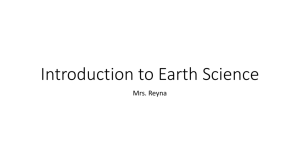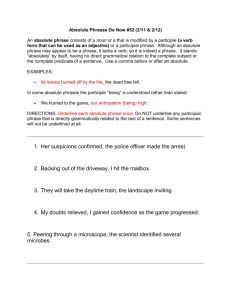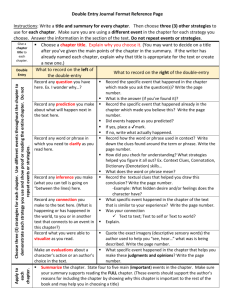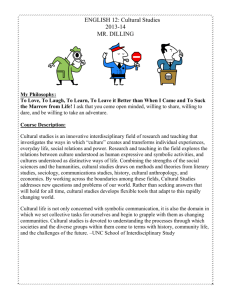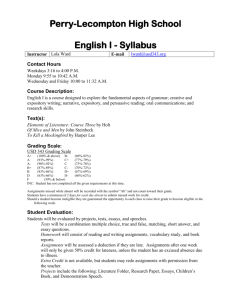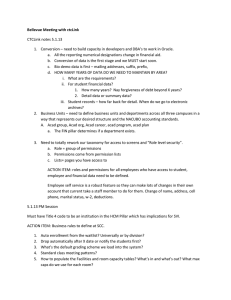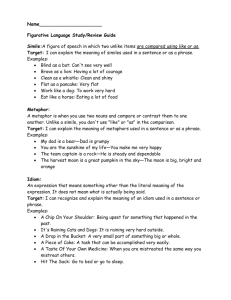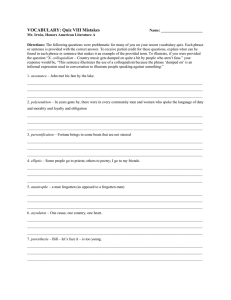Departmental Policy on Academic Integrity
advertisement
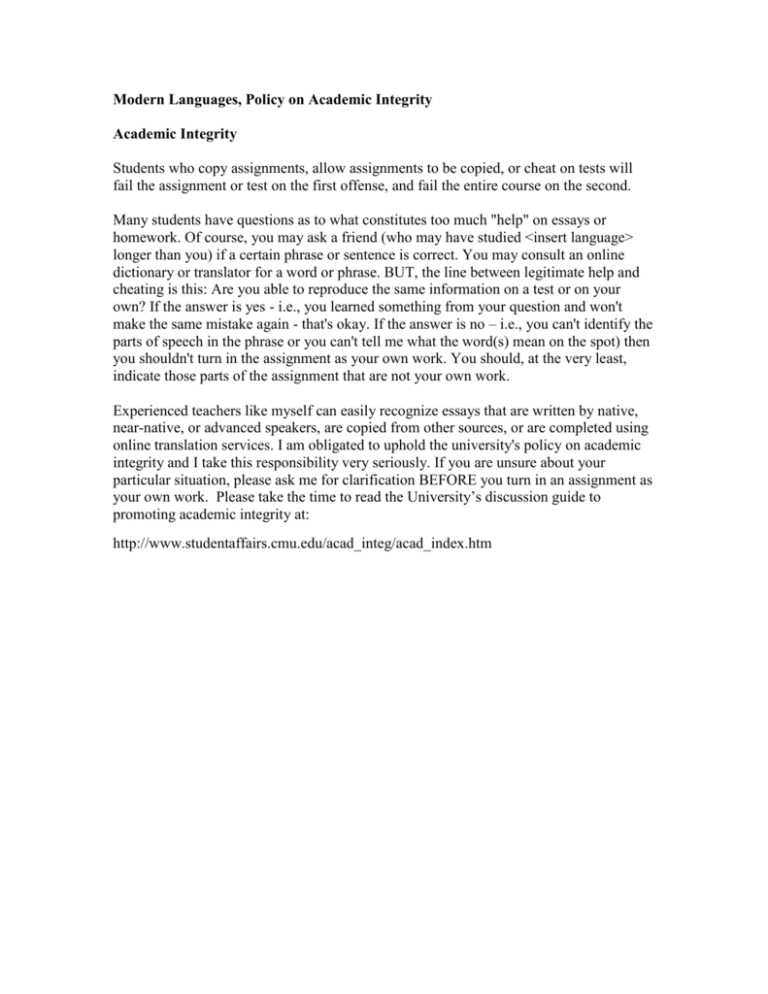
Modern Languages, Policy on Academic Integrity Academic Integrity Students who copy assignments, allow assignments to be copied, or cheat on tests will fail the assignment or test on the first offense, and fail the entire course on the second. Many students have questions as to what constitutes too much "help" on essays or homework. Of course, you may ask a friend (who may have studied <insert language> longer than you) if a certain phrase or sentence is correct. You may consult an online dictionary or translator for a word or phrase. BUT, the line between legitimate help and cheating is this: Are you able to reproduce the same information on a test or on your own? If the answer is yes - i.e., you learned something from your question and won't make the same mistake again - that's okay. If the answer is no – i.e., you can't identify the parts of speech in the phrase or you can't tell me what the word(s) mean on the spot) then you shouldn't turn in the assignment as your own work. You should, at the very least, indicate those parts of the assignment that are not your own work. Experienced teachers like myself can easily recognize essays that are written by native, near-native, or advanced speakers, are copied from other sources, or are completed using online translation services. I am obligated to uphold the university's policy on academic integrity and I take this responsibility very seriously. If you are unsure about your particular situation, please ask me for clarification BEFORE you turn in an assignment as your own work. Please take the time to read the University’s discussion guide to promoting academic integrity at: http://www.studentaffairs.cmu.edu/acad_integ/acad_index.htm
